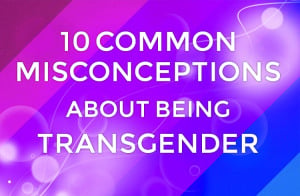
Detainee talking to someone through a glass pane.
This article was originally published on Threads of Solidarity and was republished here with the author’s permission.
Editor’s Note: While this article focuses specifically on Latinx immigration issues, we acknowledge that non-Latinx immigrants of color face similar challenges.
Imagine a government that kidnaps, tortures, rapes, and kills. Now imagine one that forces people into slavery.
These horrors sound like things that happen to people who live in far away countries impoverished and ravaged by corruption — lands of lawlessness where human rights count for nothing. Countries where you are on your way to work one minute and, in the next, arrested in front of your children, jailed, and held without access to an attorney for years.
But this isn’t a distant country. This is the United States.
And these horrors are happening every day to some of our most vulnerable victims — Latinx immigrants.
A culture of contempt against Latinx people permeates not only mainstream culture but ICE agent culture under Trump as well — from racial profiling and hate crimes to midnight arrests and mass deportations of brown-skinned people.
These acts are perpetrated against moms working multiple jobs, dads dropping their kids off at school, college students, and even kids on their way to the prom.
People have faced hell to travel miles from South America, Central America, and Mexico, only to end up detained, dead, or deported in the so-called “land of the free.”
The impact is devastating. Families are being ripped apart.
In Trump’s America, Latinx people are “bad hombres” and undocumented immigrants are “criminals,” no matter how law-abiding, tax-paying, or college-educated.
No one is safe from being targeted — not families, mothers, college students, or even children. ICE is not concentrating on immigrants who have committed crimes, they are after everyone. And this is all courtesy of Trump and his administration’s war on Latinx immigrants and other Latinx people caught in the crossfires.
U.S. citizens and documented residents aren’t safe either — not if they have brown skin. Hundreds of Latinx citizens have been detained for days, months, or even years.
Davino Watson was held for more than three years. Rony Chavez Aguilar was in ICE custody without access to legal services and was being prepared for deportation for more than three weeks.
This is Trump and his administration’s wet dream come true — a repeat of Eisenhower’s “Operation Wetback,” where any Mexican or Mexican-American who could not immediately prove citizenship was deported or simply dumped in the desert to die.
It is an even bigger throwback to Hoover’s “Mexican Repatriation” of the 1930s, when up to 2 million Mexicans and Mexican-Americans were illegally deported. Approximately 60% of them were U.S. citizens.
Since Trump took office, arrests of undocumented immigrants have soared nearly 40%. ICE literally can’t deport people fast enough due to sheer volume and, of course, because there is a lot of money to be made in incarceration.
This is part of what Trump meant by making America “great” again. This is on the spectrum of ethnic cleansing. This is Trump, Jeff Sessions, Steve Bannon, John Kelly, Tom Homan, and Stephen Miller wanting to make America not safer, but whiter. They want us to be afraid.
This is a state of emergency. Mass deportations are happening now. Racial profiling and mass arrests are happening now. We are in a code red situation. We need all hands on deck to resist Trump’s regime of terror.
Here are some ways you can help.
1. For undocumented people: Resist ICE.
Know your rights, be prepared, and reach out to organizations dedicated to upholding the rights, dignity, and safety of undocumented immigrants.
- Download a “know your rights” red card from the National Lawyers Guild to keep on your person at all times to use and/or share. Download pamphlets in English and Spanish or buy in bulk from the ACLU and distribute in locations such as libraries, markets, and churches.
- Learn about differences in recommended responses to ICE presence depending on location: homes, workplaces, healthcare facilities, streets, courthouses, traffic stops, and what to do after a raid.
- Stay alert for ICE presence with local radio, immigrants rights organizations, social media hashtags like #ICEin[city name] and #MigraWatch. Know if your locale has a hotline and make a test call to ensure it is working. To prevent undue panic, double check sources to ensure an alert is not a false alarm.
- Check out RedadAlertas, a web app for receiving alerts of ICE presence in workplaces and traffic checkpoints that are verified and in real time. This app is in development by a formerly undocumented software developer.
- Keep on hand a phone number for a vetted lawyer — see Questions to Ask Before You Hire an Immigration Attorney — or a number of a trusted immigration legal services organizations.
2. For documented people: Disrupt ICE.
Join or organize a local Rapid Response Team to assist undocumented people before, during, and after ICE raids.
- Read these 5 tips from Mother Jones on how to fight deportation raids.
- Download this comprehensive toolkit, Defend Against ICE Raids and Community Arrests, from the Immigrant Defense Project and Center for Constitutional Rights. Also download this tip sheet, Raids Rapid Response: Toolkit for Faith Allies, from the Coalition of Interfaith Sanctuaries to get started.
- Get trained as a National Lawyers Guild legal observer.
- Use these methods from CopBlock on documenting police actions for observing ICE agents.
- Check out this step-by-step tip sheet for preparing, organizing, and observing ICE and these tips from CopBlock that apply to starting local ICE observer groups.
- Discuss civil disobedience. (See examples here.) Be clear about your decisions and each team member’s decisions, get civil disobedience training, and have backup plans in place.
3. Create local sanctuaries for immigrant communities.
Know the stance of and get in writing what ICE cooperation looks like from local law enforcement, representatives, and community leaders.
- Be familiar with Mijente’s policy guide for sanctuary status and meet with your local immigrants’ rights groups to learn how to stop collaboration of local law enforcement with ICE.
- Meet with local officials and leaders to review the Immigrant Legal Resource Center’s guide, “Local Options for Protecting Immigrants: A Collection of City & County Policies to Protect Immigrants from Discrimination and Deportation,” and these recommendations for your community from the Immigration Defense Project.
4. Stay up-to-date on current immigration legislation.
Resist the xenophobic S. 354 RAISE Act. It’s not about the economy, merit, or criminals. It’s about white supremacy, neo-nativism, and baseless white fears.
- Oppose the Raise Act with emails, tweets, and Facebook posts from the League of United Latin American Citizens. Use these sample tweets to contact your Representatives:
@[REPRESENTATIVE] Welcome #refugees & #families & #immigrants. Say NO to the RAISE Act #RefugeesWelcome #NoBanNoWallNoRaids #GreaterAs1
@[SENATOR] The RAISE Act would separate families, reject refugees & dishonor American values. Stop this anti-family, anti-refugee bill. #VoteNo
- Sign the petition to Congress to oppose the RAISE Act and use the accompanying script to email and send texts to your representatives with RESISTBOT (text “Resist” to 50409).
- Track immigration-related legislation. Click on any bill to bring up links to “What You Can Do.”
5. Assist and advocate for immigrants held in detention.
Immigrant detention centers are typically and strategically placed in rural areas, often hundreds of miles away from detainees’ families, legal services, and advocacy organizations. Help bridge the gap between immigrants who are imprisoned and the assistance they need.
- Bail out an immigrant who is unable to post bond by clicking here, scrolling to “fundraisers,” and clicking on the pictures to read immigrants’ personal stories and the details of their situations.
- Volunteer with CIVIC and get trained for any of their End Isolation programs providing detainee advocacy and support.
- Visit immigrants who are, often, detained hundreds of miles from their families. Become a penpal where visitation programs do not exist. Tend to a national hotline for detainees to report abuse or to be connected to family and friends by circumventing prohibitive phone call costs. Support recently freed immigrants through CIVIC’s post release program.
- Support activist organizations like NWDC Resistance that are on the frontlines of helping immigrants in detention who are on hunger strikes to protest inhumane conditions and lack of medical care.
- Sign petitions and make phone calls in support of immigrants marked for deportation. Read each person’s personal story and the details of their detainment on this list compiled by #Not1More and commit to acting on behalf of five detained immigrants each week.
- Sign up with Detention Watch Network to receive reports, newsletters, and alerts. Take action with your representatives, as a “shadow inspector” for detention oversight, and use this toolkit to advocate for rights of immigrants and to challenge injustices within detention and deportation systems.
6. Celebrate the resiliency of immigrants and the futures of immigrant youths.
Make visible your support for Deferred Action for Childhood Arrivals (DACA) on its fifth anniversary, August 15th. DACA gives children brought illegally to the U.S. (“Dreamers”) the right to attend school, get a driver’s license, and receive work permits. Trump has already eliminated DACA’s companion program, the Deferred Action for Parents of Americans and Lawful Permanent Residents (DAPA).
- Attend or organize an event for the anniversary of DACA, join a United We Dream event, another local event, or plan a #HereToStay event with your community.
- Use these #OutragedAndUnafraid action guides, join Cosecha’s resistance, and watch this one-minute video to get inspired and demonstrate fierce support of DACA.
- Find your local youth, undocumented-led immigrants’ rights organization like the California-based Immigrant Youth Coalition, and follow their lead on events and actions.
7. Donate to support immigrant justice.
According to a 2015 study, only 14% of detained immigrants have attorneys. However, 21% of those who DO have legal representation win their deportation cases and 48% are released while their cases are pending. Without representation, only 2% of claimants win their cases and only 7% are released while their cases are pending. Legal services can mean the difference between life and death for immigrants. Donate to these organizations that offer legal help and many other services to immigrants who have been arrested and detained.
Northwest Immigrant Rights Project (NWIRP)
Based in Washington State, NWIRP provides direct legal services for people at risk for detention or those in detention and deportation proceedings.
Their impact litigation unit brings federal- and state-level cases against unjust policies such as racist border patrol actions, the detention and deportation of people with unmet mental health care needs, and various other immigrant rights issues.
They have won a growing number of immigration appeals in landmark cases. NWIRP also provides community outreach and education, as well as expert immigration advice to advocates, service providers, and attorneys. Stay up to date by following them on Facebook and Twitter. Donate to NWIRP here.
Coalition for Humane Immigrant Rights (CHIRLA)
Based in California, CHIRLA provides immigration legal services at low cost to members and helps thousands with release from detention, citizenship, and DACA.
They are strong policy advocates at the federal, state, and local levels for due process, anti-detention, and immigration legislation reform. CHIRLA organizes and creates leadership capacity with their Wise Up program for youth and California Dream Network for college students.
Active with community outreach and education, CHIRLA also advocates for full civic engagement at the ballot box. Follow them on Facebook and Twitter. Donate to CHIRLA here.
Refugee and Immigrant Center for Education and Legal Services (RAICES)
Based in Texas, RAICES provides free and low-cost legal services for residency and citizenship, unaccompanied refugee children, and refugees seeking asylum status.
RAICES runs an emergency shelter in proximity to detention for post-release support. Their advocacy work includes tracking the internment-like conditions of detention centers and working to shut down family detention facilities in their vicinity.
Stay up-to-date on Facebook and Twitter. Support them with a monthly donation for phone calls with families in detention costing $50 for 30 minutes and give to ensure translation services here. Donate to RAICES here.
[do_widget id=’text-101′]
Threads of Solidarity is a collective voice for women of color solidarity and liberation. Our goal is to strengthen the voices of women of color in the anti-oppression fight and provide resources as well as action items to continue working towards racial justice.
Search our 3000+ articles!
Read our articles about:
Our online racial justice training
Used by hundreds of universities, non-profits, and businesses.
Click to learn more




















